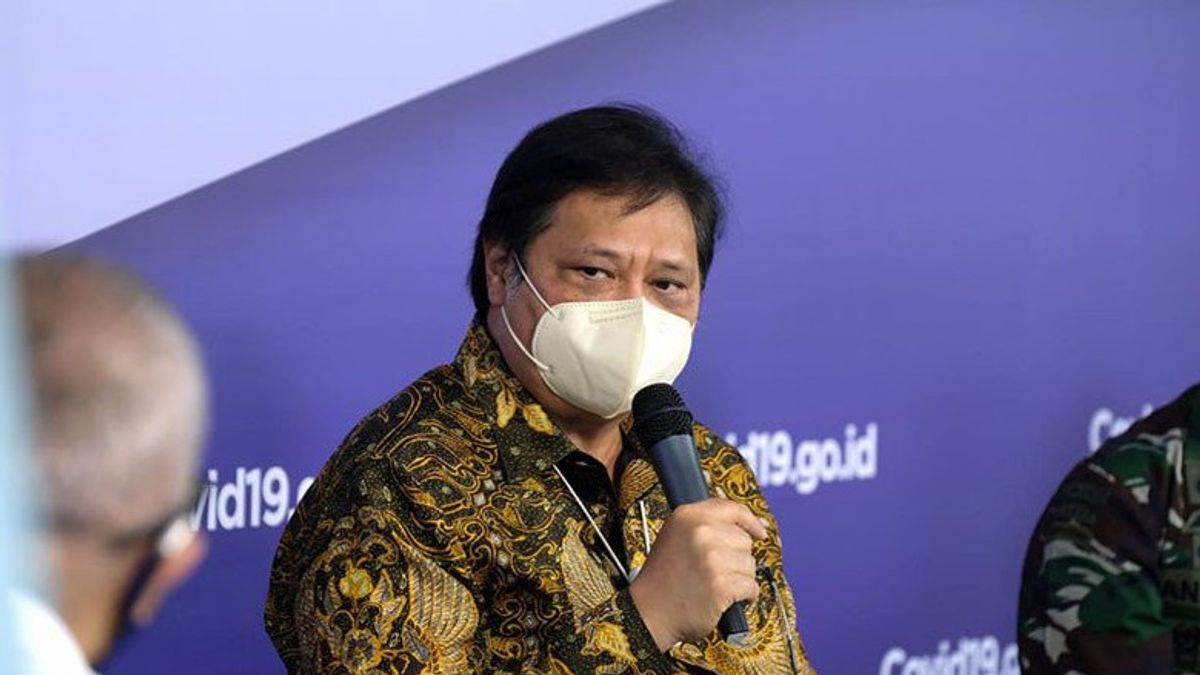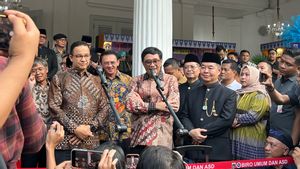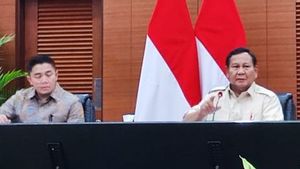JAKARTA - The government has decided to extend the implementation of PPKM level 4 until August 16. This tightening policy in the context of handling COVID-19 has been extended three times.
However, this time the government has provided easing in the economic sector by allowing 100 percent of export-oriented industries to operate.
Coordinating Minister for the Economy Airlangga Hartarto explained that even though they were allowed to operate, companies in the export-oriented and supporting industrial sector still had to implement strict health protocols (prokes).
Airlangga also said the government would close down companies that are clusters of the spread of COVID-19.
"The export-oriented and supporting industries operate 100 percent with strict procedures. If a cluster is found, it will be closed for 5 days," he said in a virtual press conference, Monday, August 9.
Airlangga said this regulation applies to areas where PPKM level 3 and level 4 apply.
Meanwhile, Coordinating Minister for Maritime Affairs Luhut Binsar Pandjaitan said it was hoped that this week all the procedures had been compiled, so that the export-based essential industries could start operating immediately.
"So that starting next week it can be operated in level 4 cities with 100 percent. The staff is divided into at least two shifts," said Luhut.
For information, this plan is in accordance with the request of the Chairman of the Indonesian Chamber of Commerce and Industry, Arsjad Rasjid. He said the economy must continue to run amid efforts to deal with COVID-19.
Arsjad said that if the manufacturing business sector is not opened immediately, Indonesia will lose the opportunity to get global demand.
"If we don't do it 100 percent, it will be very difficult. We are an essential export-oriented industry. There is global demand. We, Indonesia, must be able to take the main position in helping the world supply chain," he said at the 'Economic Dialogue on Economic Performance Quarter II-2021' , virtually, Thursday, August 5th.
Even so, Arsjad emphasized that the opening of the business sector must be accompanied by strict and disciplined health protocols. This is to avoid an increase in COVID-19 cases.
Not only manufacturing, said Arsjad, retail sectors such as shopping centers or malls must also be opened. Arsjad assesses that by opening a shopping center, it will increase the number of people's consumption which then has an effect on the national economy.
According to Arsjad, mall operations can be carried out by requiring workers to have vaccinated and mall visitors must show vaccine cards.
The English, Chinese, Japanese, Arabic, and French versions are automatically generated by the AI. So there may still be inaccuracies in translating, please always see Indonesian as our main language. (system supported by DigitalSiber.id)













